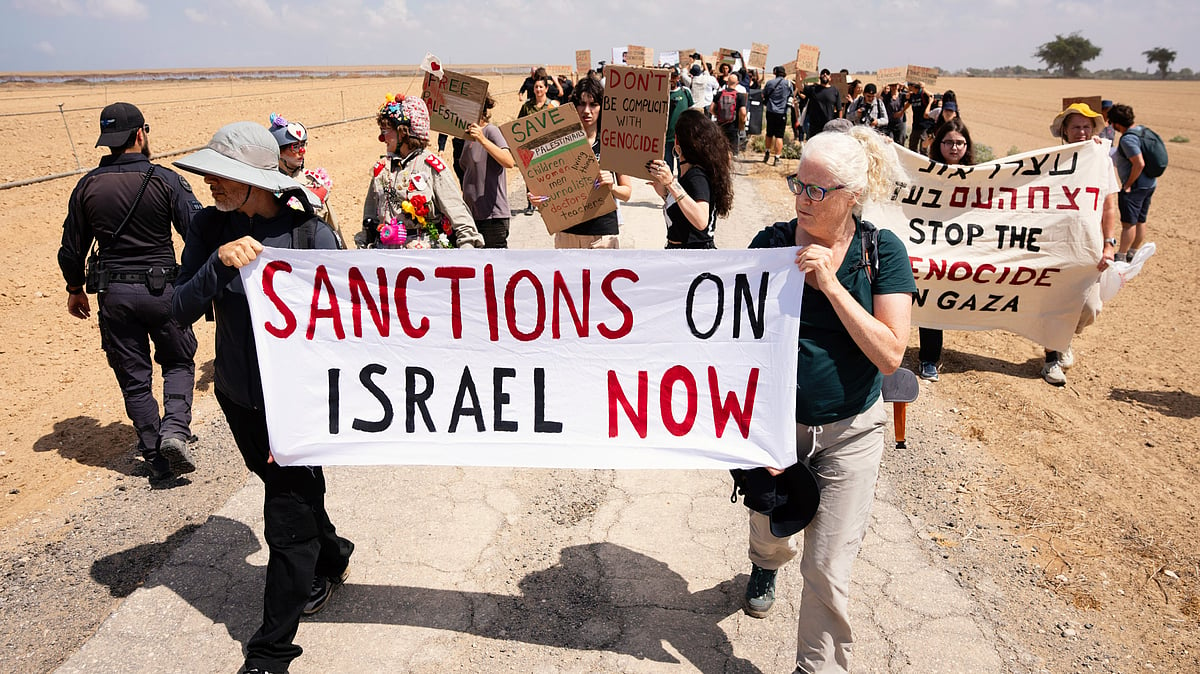World
France, Saudi Arabia convene summit to recognise Palestine ahead of UNGA
The summit, timed just ahead of the annual United Nations General Assembly, comes as the war in Gaza enters a deadly phase

A high-profile summit convened in New York by France and Saudi Arabia on Monday is expected to see several countries formally recognise a Palestinian state, a diplomatic gesture Israel has dismissed as dangerous symbolism that undermines the prospect of peace, as per a Reuters report.
The summit, timed just ahead of the annual United Nations General Assembly, comes as the war in Gaza enters a grinding and deadly phase. More than 65,000 Palestinians have been killed according to local health authorities, while Israel presses on with its military campaign against Hamas under the direction of what analysts describe as the most far-right government in its history.
While the move is likely to lift Palestinian morale, diplomats admit it will not alter the reality on the ground. Israeli Prime Minister Benjamin Netanyahu has ruled out the creation of a Palestinian state, vowing instead to continue the campaign in Gaza until Hamas is destroyed.
Netanyahu, who is currently in the United States for meetings including with President Donald Trump, said on Sunday he will announce Israel’s official response after returning home. Israeli officials have hinted that options under consideration include annexation of parts of the occupied West Bank and punitive bilateral steps against Paris.
Annexation, however, risks alienating Arab partners such as the United Arab Emirates, which normalised ties with Israel under the 2020 US-brokered Abraham Accords. The UAE has already warned that such a step would “undermine the spirit of the agreement”. Washington too has signalled consequences for countries, including France, that take measures against Israel.
Published: undefined
Israel and the United States are boycotting the New York meeting. Israel’s UN ambassador Danny Danon derided the event as a “circus”.
But momentum for recognition is growing. On Sunday, Britain, Canada, Australia and Portugal formally recognised a Palestinian state, with France and at least five other countries expected to follow suit at Monday’s summit. A majority of European nations have now extended recognition, though major players Germany and Italy continue to hold back.
Germany, long one of Israel’s staunchest allies because of its historic responsibility for the Holocaust, has become more openly critical of current Israeli policies. Still, Berlin insists recognition should only come “at the end of a political process” and on Monday warned against “further annexations in Israeli-occupied territory”. Italy echoed that position, calling immediate recognition “counterproductive”.
Beyond Europe, Russia reiterated its belief that the two-state solution remains the “only possible way” forward. “This remains our approach, and we believe that it is the only possible way to find a solution to this extremely complex, long-standing conflict, which is now perhaps at its most acute and tragic stage in its entire history,” Kremlin spokesperson Dmitry Peskov told reporters.
Published: undefined
The idea of two states living side by side was the foundation of the 1993 Oslo Accords, the US-brokered framework that once embodied international hopes for peace. Yet that process has long since collapsed under the weight of violence, mistrust and political shifts.
Now, with Israel escalating its military assault on Gaza City and violence by settlers rising in the West Bank, officials in Paris argue that time is running out. Reuters quoted French foreign minister Jean-Noel Barrot as saying on Monday: “The decision that the President of the Republic will present this afternoon to the United Nations General Assembly is a symbolic, immediate, political decision that demonstrates France’s commitment to the two-state solution.”
President Emmanuel Macron had announced as early as July that France would recognise Palestine, hoping the move would give heft to what had been until now a campaign led mainly by smaller states more critical of Israel.
For supporters, Monday’s recognitions are meant as a signal that the two-state solution still has champions on the world stage. For detractors, they risk further hardening Israeli resistance and prompting dangerous unilateral moves such as annexation.
What is clear is that symbolism alone cannot resolve the war’s most brutal realities: a devastated Gaza, a hardened Israeli government, and a peace process that has not just stalled but been pronounced all but dead.
With agency inputs
Published: undefined
Follow us on: Facebook, Twitter, Google News, Instagram
Join our official telegram channel (@nationalherald) and stay updated with the latest headlines
Published: undefined